How the Titanic was filmed: rare photos from the filming
Categories: Celebrities | Cinema
By Pictolic https://pictolic.com/article/how-the-titanic-was-filmed-rare-photos-from-the-filming.htmlOn December 19, 1997, the premiere of the film "Titanic" took place. They spent $200 million on filming, which was a record budget for that time. The next record - the film became the highest-grossing in the history of cinema, collecting $ 1.8 billion. This record could be broken only 12 years later by the movie "Avatar".
Do you want to look "behind the scenes" and see exactly how the familiar scenes were filmed? Today you have such an opportunity!
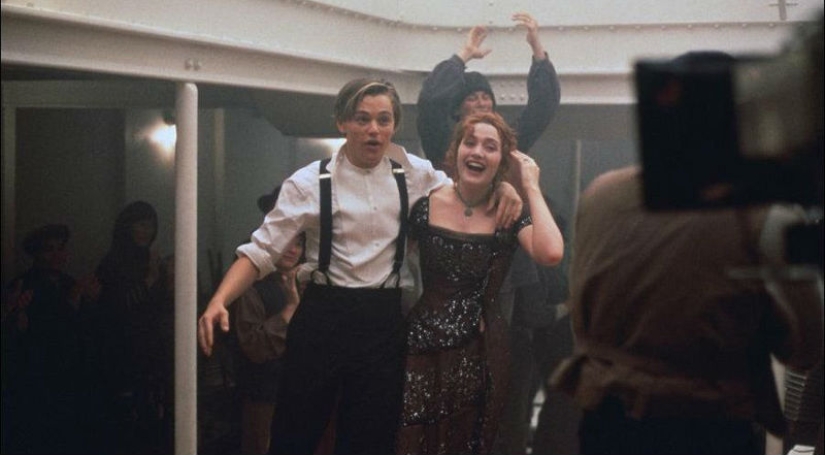
Rob Legato: "Jim could have hired another thousand people, but they would have had to be transported, fed, clothed, and also hired additional makeup artists. My rule during the filming of the film was simple: if something can be captured with a standard movie camera, we shoot on film. If it is impossible to shoot a scene or any object in it, we use a computer. For the episodes in which the passengers of the Titanic fall from a great height into the water, we filmed real splashes from the fall of ordinary objects thrown into the ocean. Instead of the expected three weeks, it took us only an hour to simulate the dynamics of water splashes using a computer."
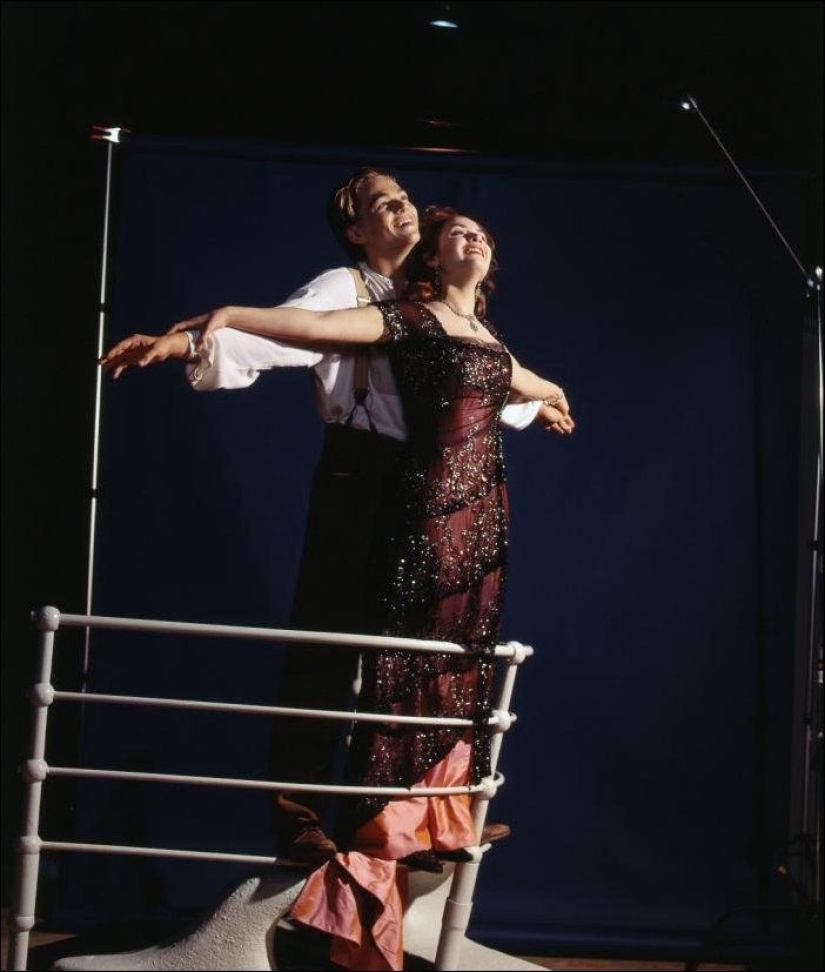
In early 1996, on the coast of Rosarito Beach in the state of Baja California (Mexico), construction began on a new giant pavilion of the 20th Century Fox studio, in which most of the scenes for the film were to be shot. There, with the help of five tons of dynamite, a pool with a displacement of four million liters was created, in which the largest model in the history of cinema will "float" in the future.
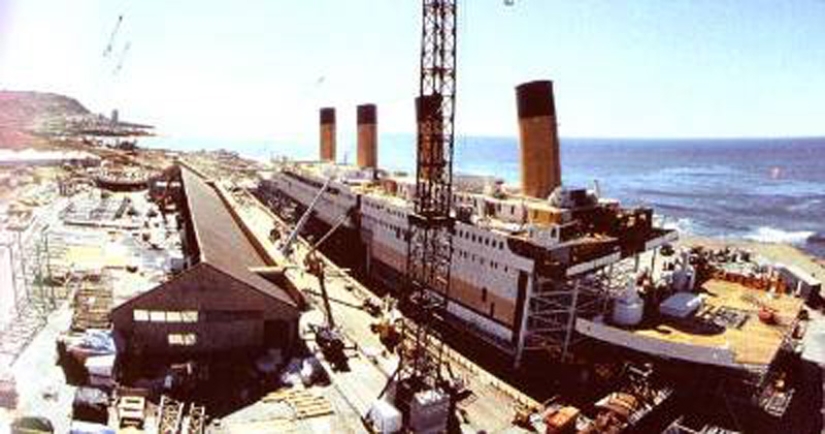
The production designer of the painting, Peter Lamont, managed to obtain copies of the drawings of the Titanic from the shipbuilding company Harland & Wolff. Using them, as well as the diary of Thomas Andrews, the chief designer of the ship, the builders began work on the construction of an almost complete replica of the Titanic. The final model of the created ship reaches 231 m in length, while the real liner was only 34 meters longer. It was on board this "ship" that the actors were filmed, replaced later in the film by digital stand-ins. "Thanks to the filming, the number of special effects on our ship layout has been reduced by almost a thousand episodes," said the film's producer Jon Landau.
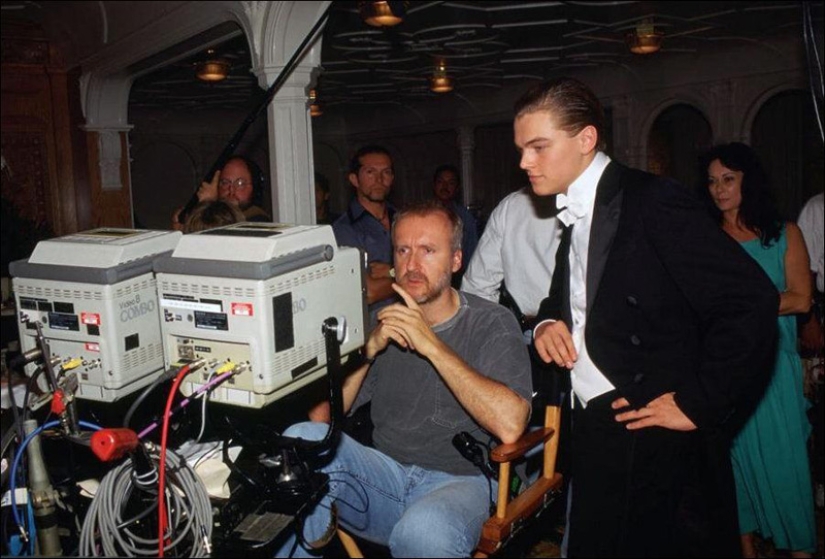
According to Rob Legato, one of the reasons why the special effects in Titanic look so plausible is the constant improvement of software and hardware for controlling the position of movie cameras and "motion capture".
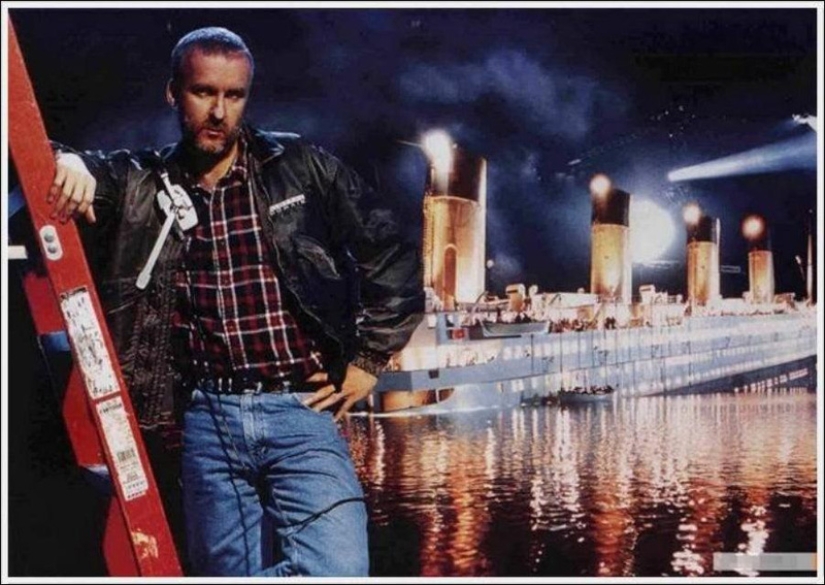
"We used motion capture systems to film how the characters in the film move, stand, sit—" he recalls. "Then we scanned the film into a computer and superimposed our actors on their computer models."
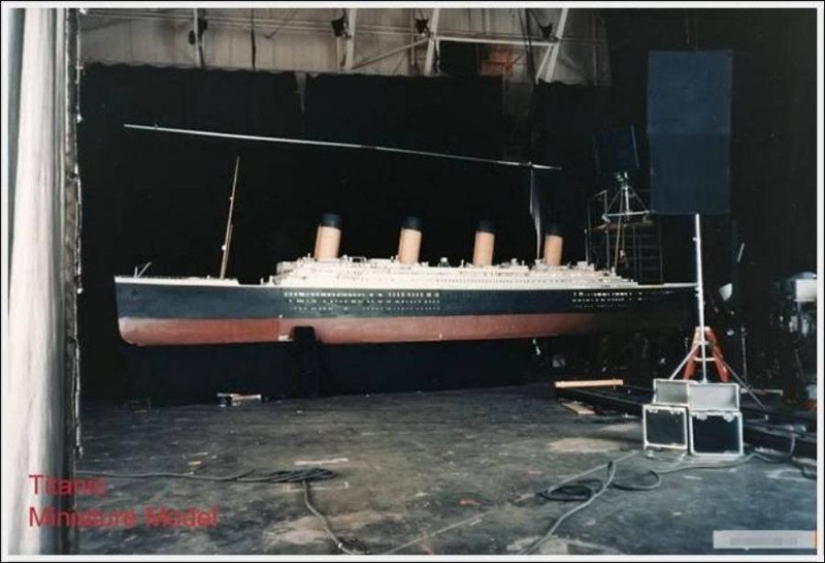
During the filming, the actors were dressed in costumes hung with motion capture sensors. Their actions looked arbitrary, even though they had been told in advance what to do. People shook hands and introduced themselves to others. They drank tea, waved to their friends and performed other movements that seemed natural and appropriate in a given place and time. A whole library of digitized movements was created in the depths of the Digital Domain, which was available to every animator of the studio.
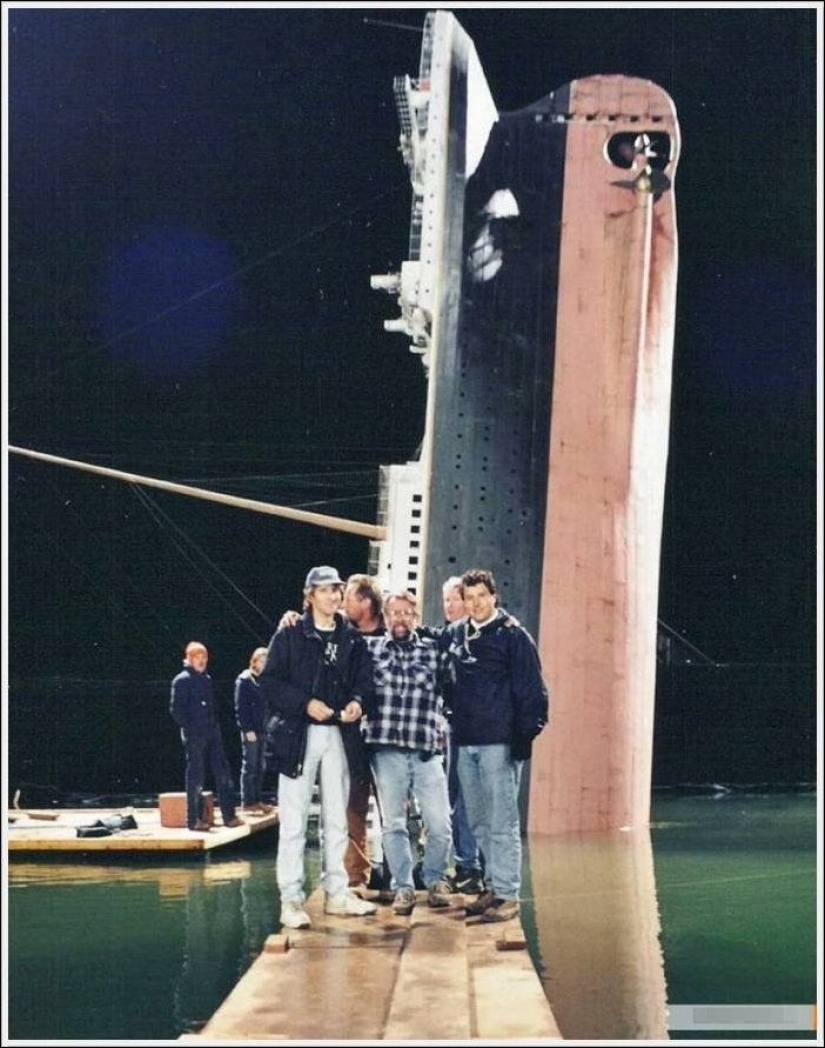
"The person in charge of the motion capture filming process said: "Let three people stand there and shake hands. Then let the trio of others pass behind these." In principle, the whole process resembled the usual filming of actors in a particular scene. Then our artists used computers to cut out the faces and clothes of real actors and superimposed them on digital understudies. We also used data from the surveys to emulate natural light. When digital actors walk around the deck, they enter both shaded and, conversely, lighter areas, which makes it more consistent with the real scenes shot by Russell Carpenter (Russell Carpenter is the director of photography of the film)."
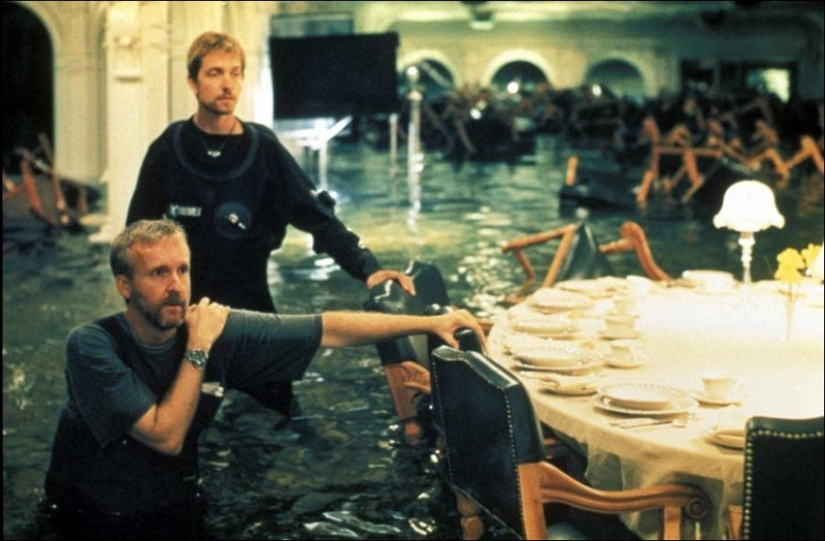
During the filming of scenes using motion capture techniques, the services of forty actors were used. By simply copying three-dimensional models, more than a thousand people took part in the shipwreck scenes at the same time.Rob Legato: "Jim could have hired another thousand people, but they would have had to be transported, fed, clothed, and also hired additional makeup artists. My rule during the filming of the film was simple: if something can be captured with a standard movie camera, we shoot on film. If it is impossible to shoot a scene or any object in it, we use a computer. For the episodes in which the passengers of the Titanic fall from a great height into the water, we filmed real splashes from the fall of ordinary objects thrown into the ocean. Instead of the expected three weeks, it took us only an hour to simulate the dynamics of water splashes using a computer."
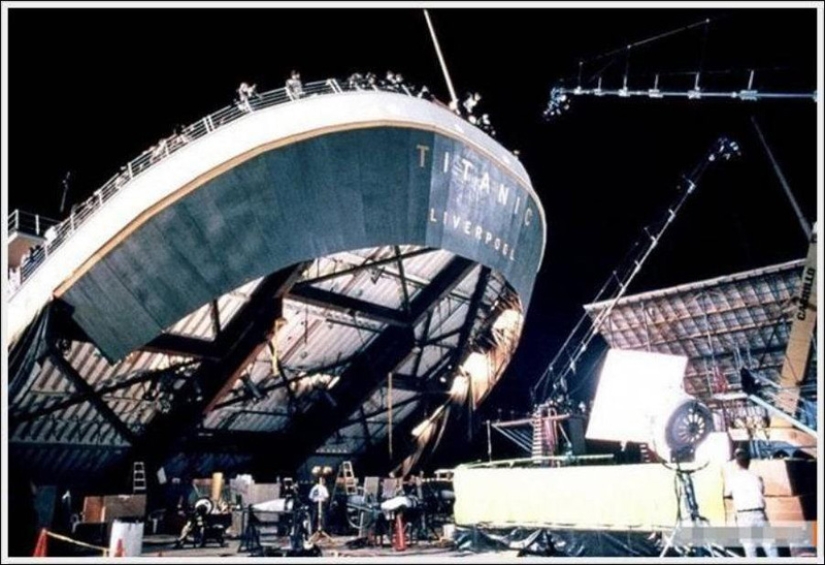
In continuation of the topic about the process of shooting people falling into the water, Legato notes that after the film footage was scanned and transferred to a computer, Digital Domain animators extended the jumps of stuntmen from a 6-meter height to a 21-meter height. At the same time, computer-simulated water was used, which made it possible to make the collision with it more dramatic and natural. The supervisor explains that even the best stuntmen will shrink just before falling into the water.
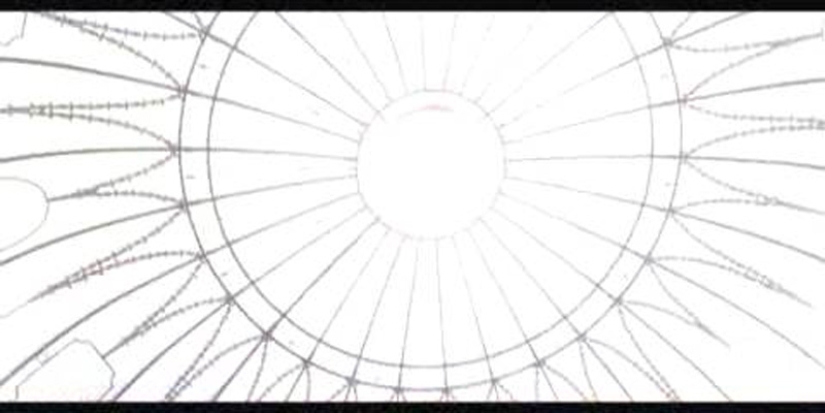
"Only the glass dome crowning the upper deck of the ship took 500 thousand dollars from the budget of the Titanic!"
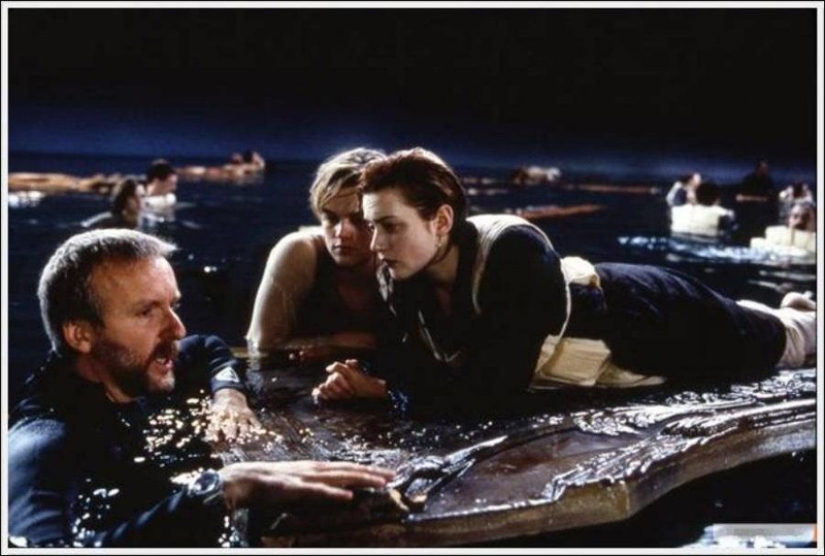
In addition to three-dimensional passengers and water, miniature models of the Titanic of museum detail were needed to create special effects for the film — several pieces were built. Digital Domain (DD) and Donald Pennington Inc (DPI) were engaged in this.
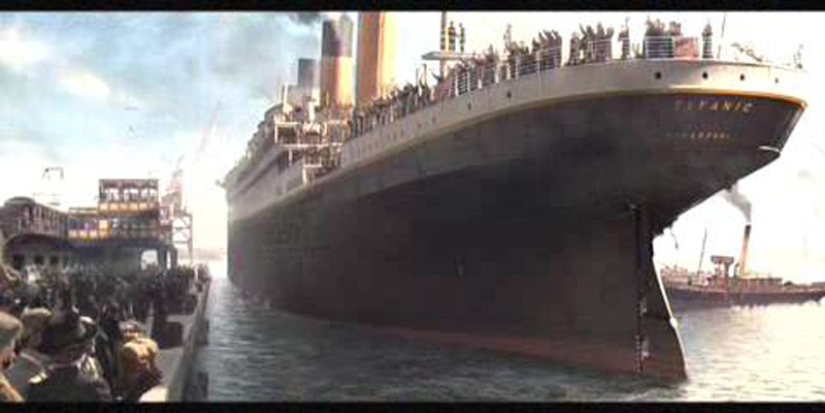
"To create this episode, a 1:20 scale replica of the Titanic was shot. "Digital" passengers were later installed on the deck. It is worth praising the Digital Domain staff for the excellent rotoscoping of the scene: the picture clearly shows that all passengers are behind the ship's cable fences. BFTR also worked on this episode: during filming, the hull of the ship was covered with a coating of rust, in addition, the paint faded due to the scorching sun. Using ElectricImage software and Adobe After Effects, BFTR Studio replaced the real painting with a new, digital one."
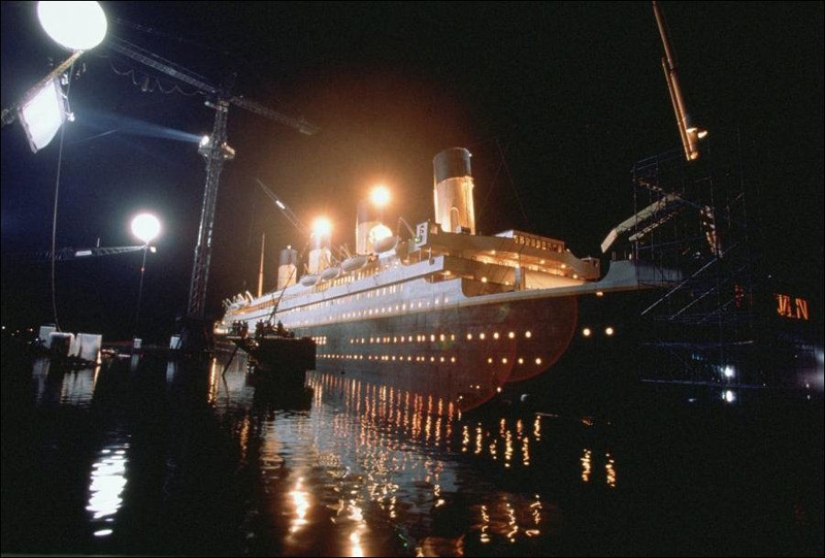
Another studio, Vision Crew, participated in the creation of models, producing detailed parts of the ship for Digital Domain miniatures: lifeboats, cranes, propellers, and about 2,000 portholes! Other studios worked on the creation of Titanic interiors separately from Digital Domain and Donald Pennington.
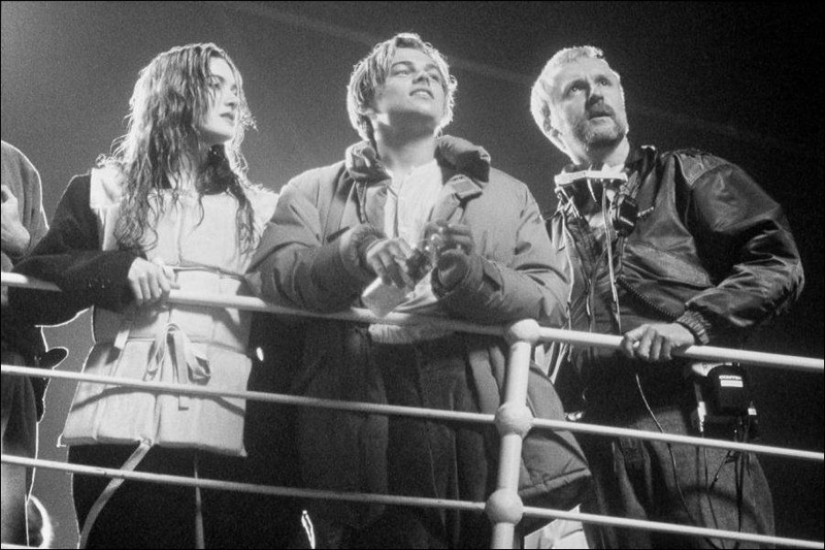
The main tool of Digital Domain during the creation of digital ocean water for the Titanic was the software created by Arete using the analysis of the results of satellite imagery of floating ships. According to Legato, the developers studied the dynamics of waves left by floating ships, investigated the effect of wind speed on waves, the amount of light absorbed and reflected by water. Digital Domain has improved the program by adding to it the ability to remove a virtual camera over long distances, as well as creating a variety of flight paths for its flight. In addition, other parameters were added: the ability to select the height, shooting angles, lens sizes, reflection of the sky in the water, as well as objects on or in the water surface reflecting sunlight.

The studios created: 7.5-m (scale 1:35, DD), 13‑m (scale 1:20, DD) and 18‑m (scale 1:14.5, DPI) models, as well as 44-m (scale 1:6, DPI) miniature, which during the filming of the film will be broken in half (DPI), 7.5‑m bow (DD), 7th and 15th aft (DPI) parts of the ship. Both studios also collaborated in the process of building full-size copies of the Mir submarines.
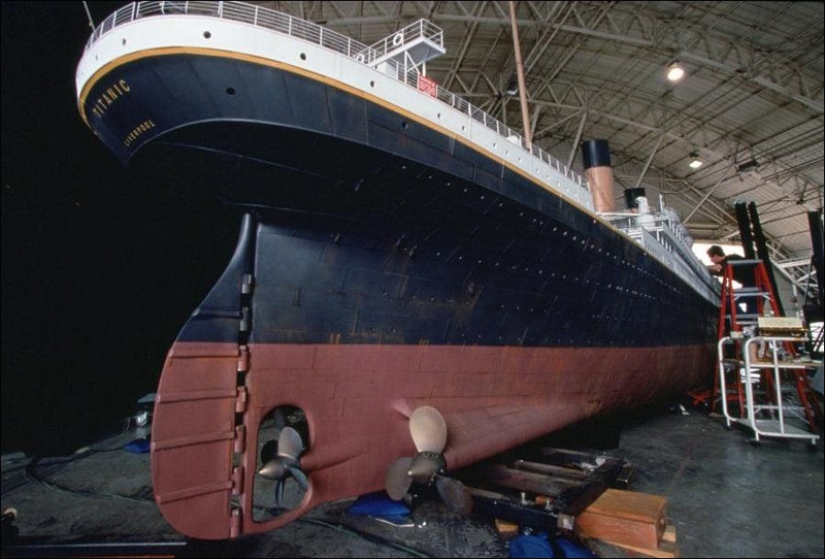
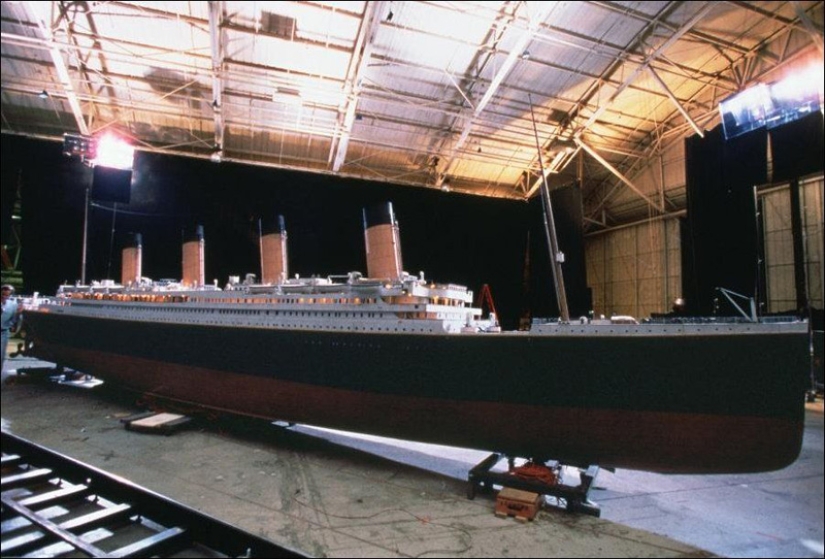
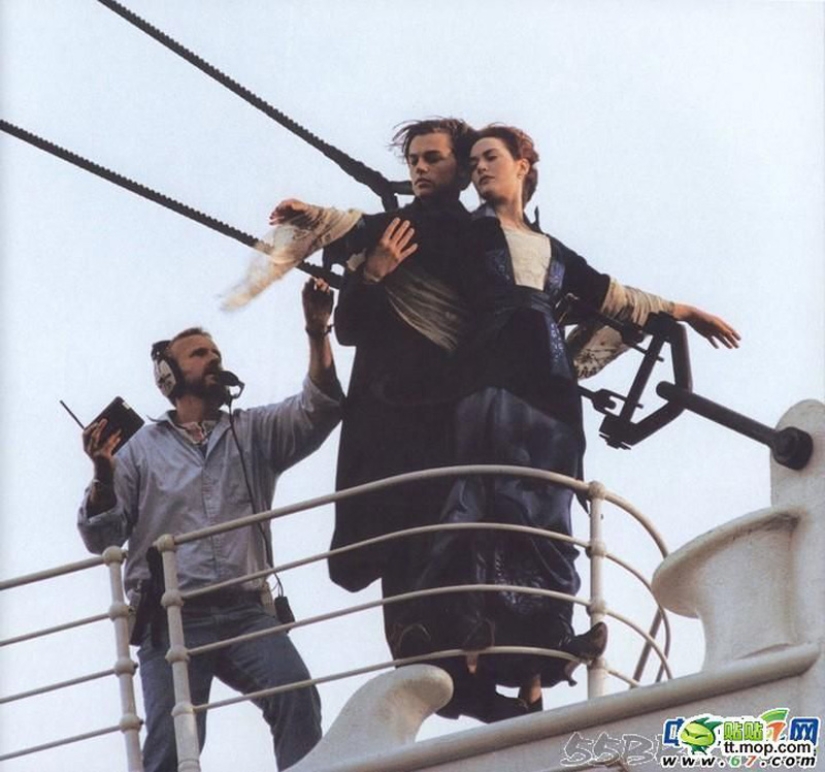
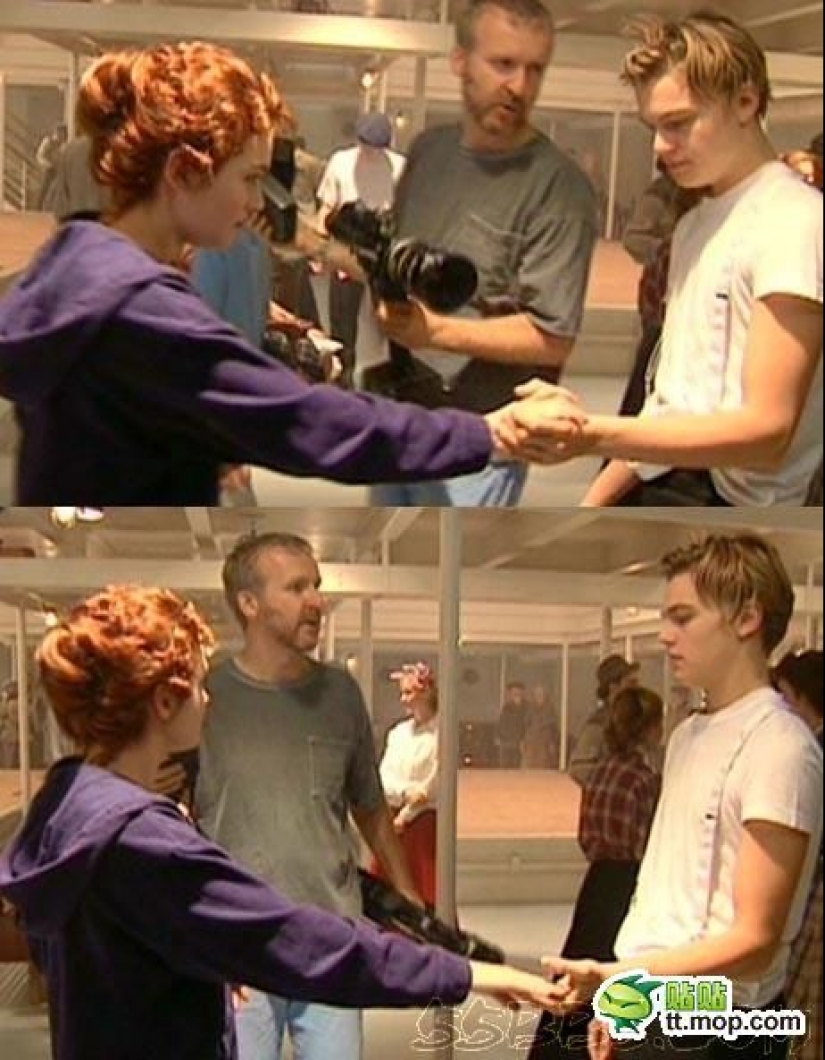
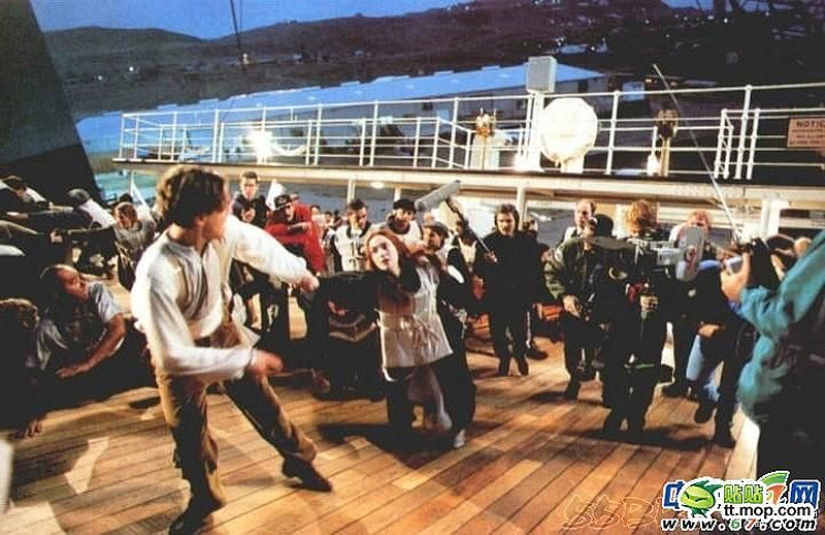
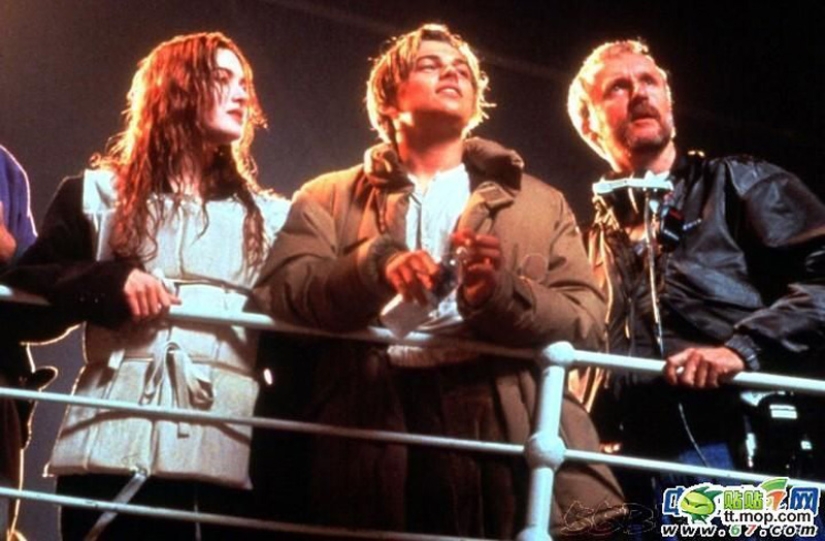
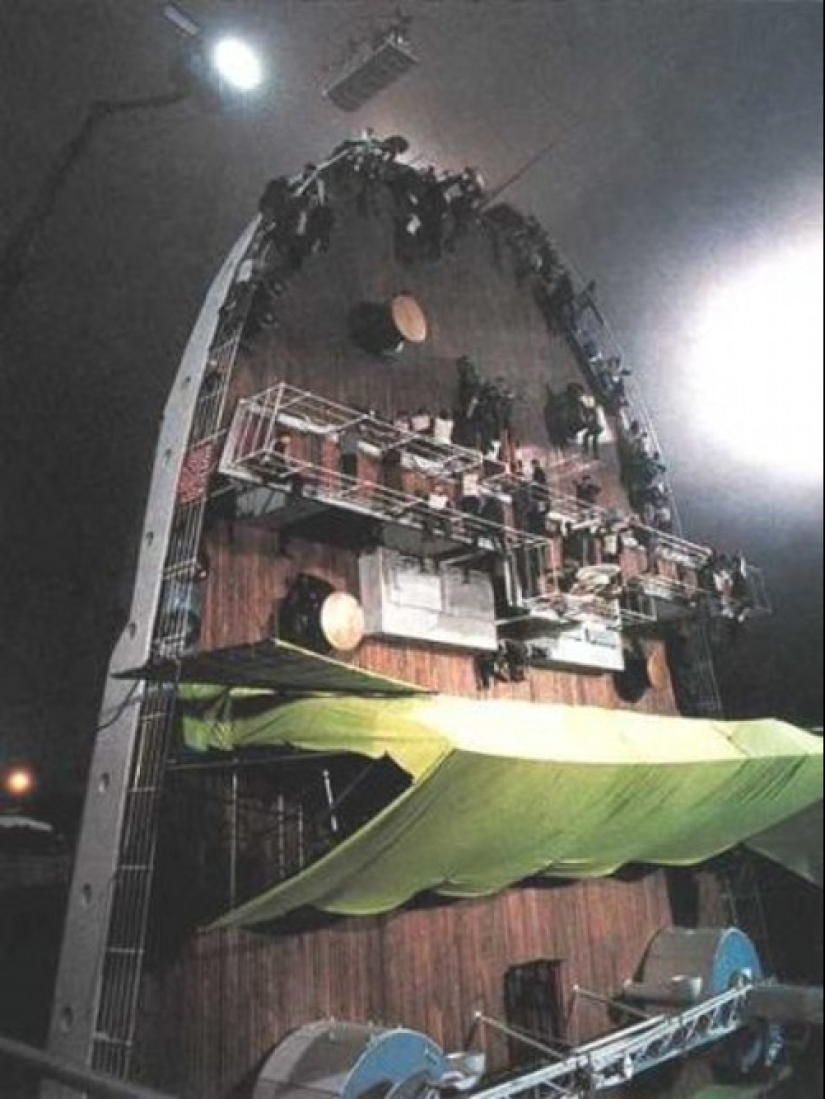
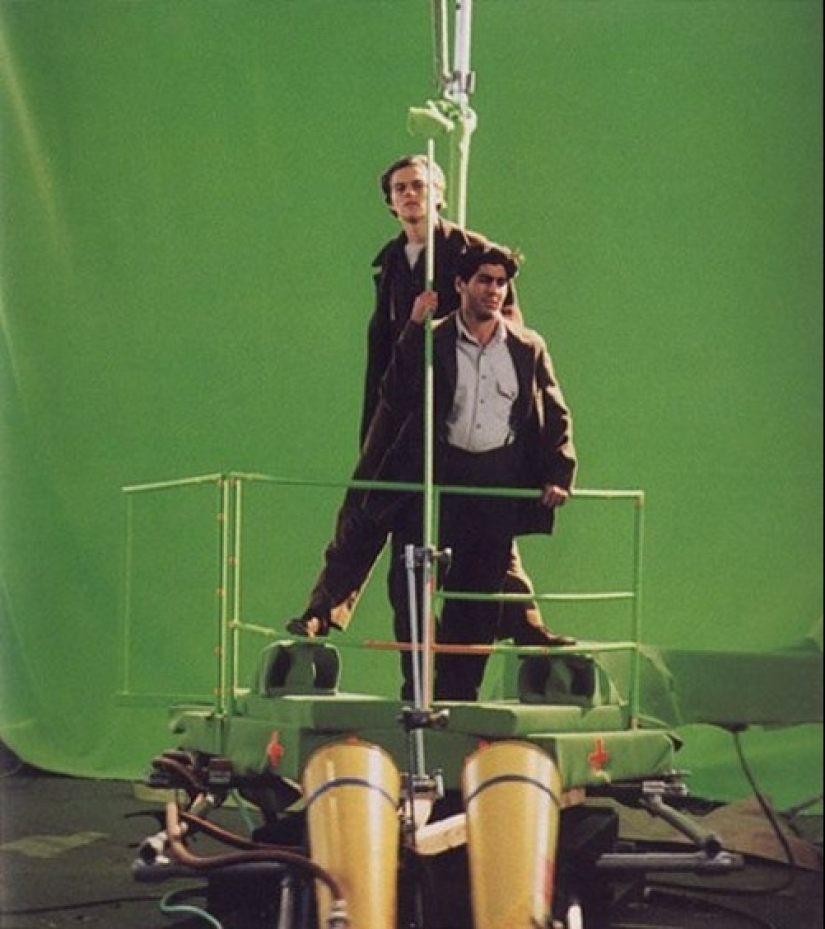
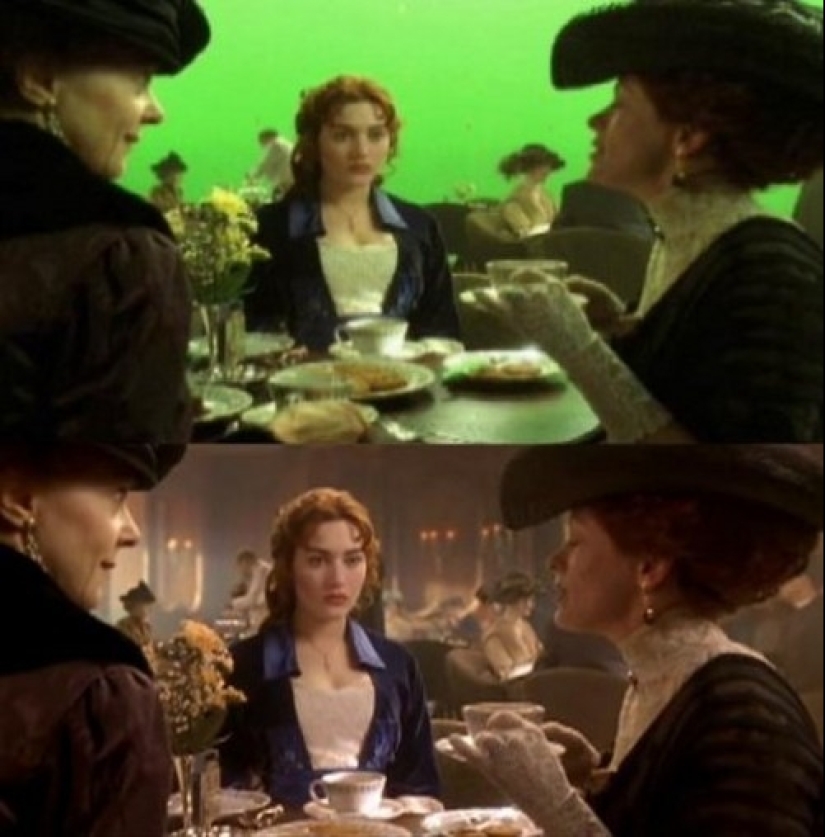
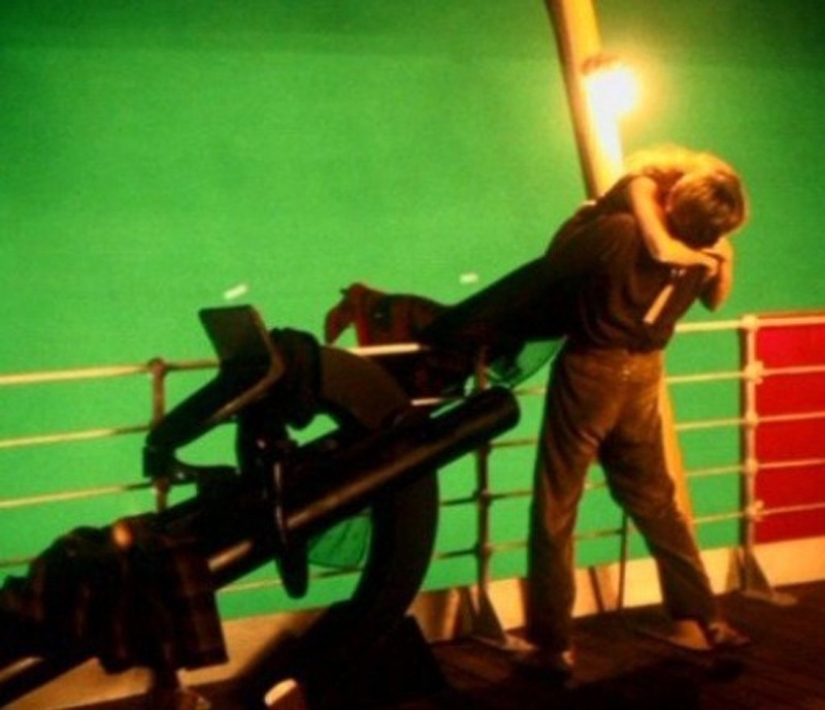
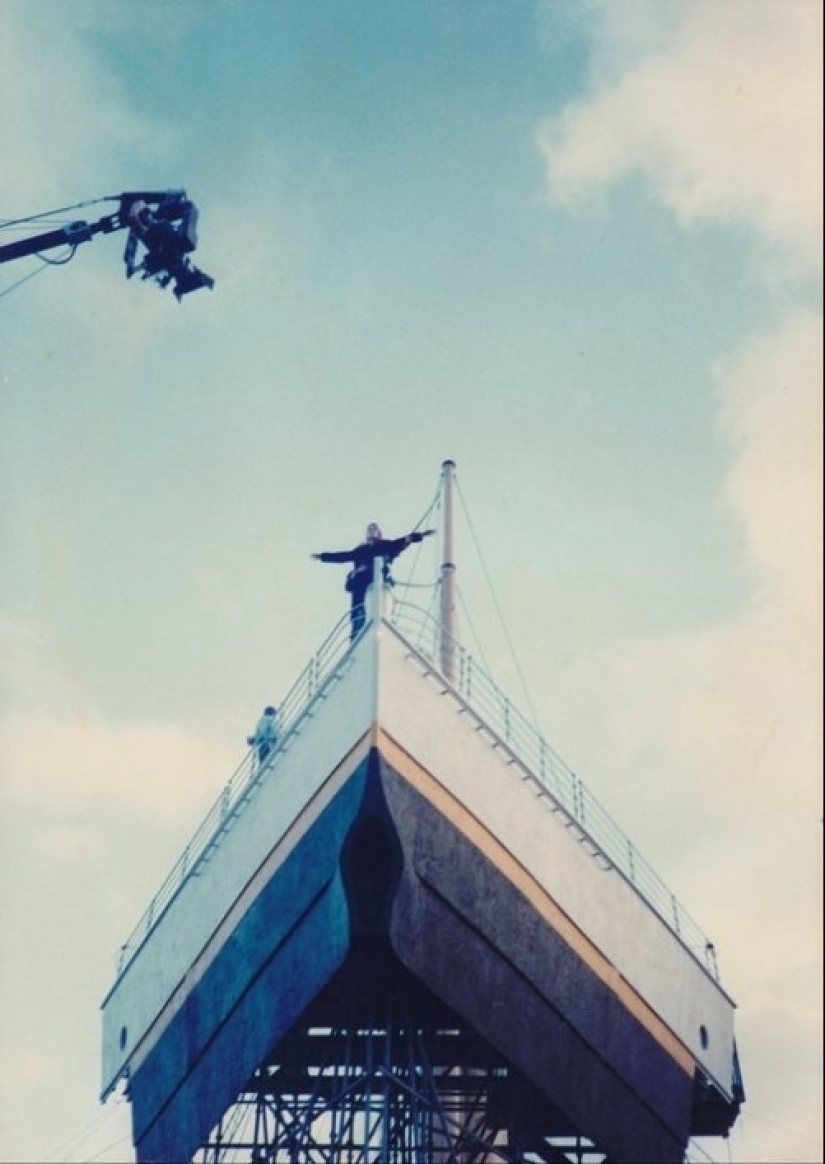
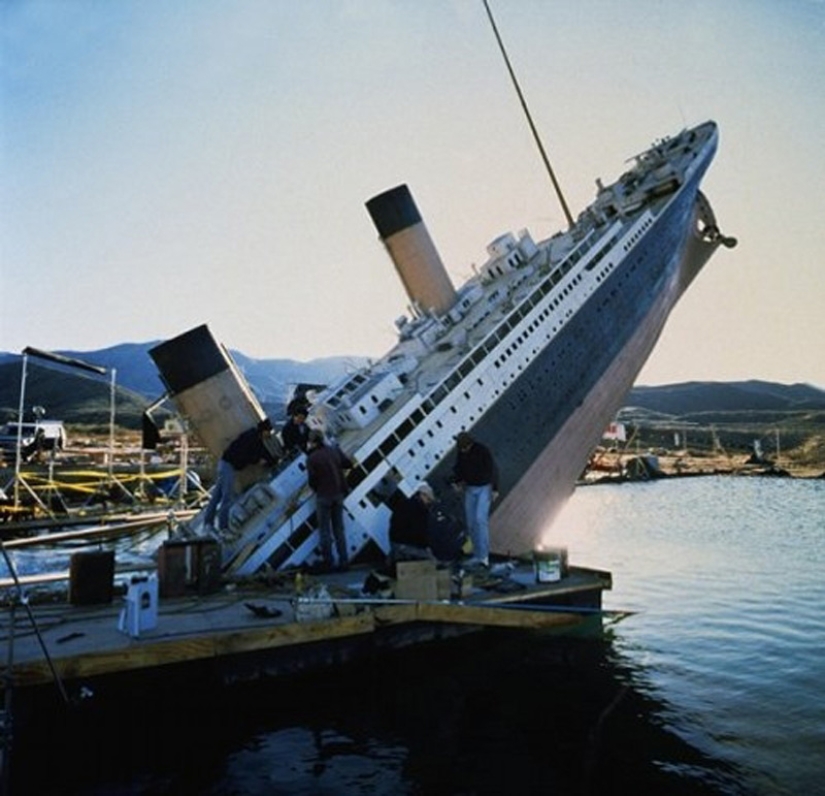
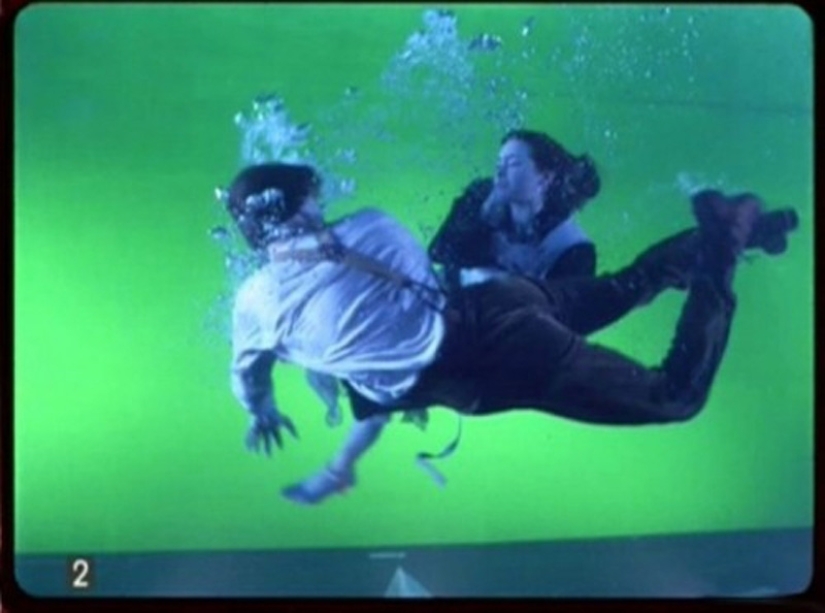
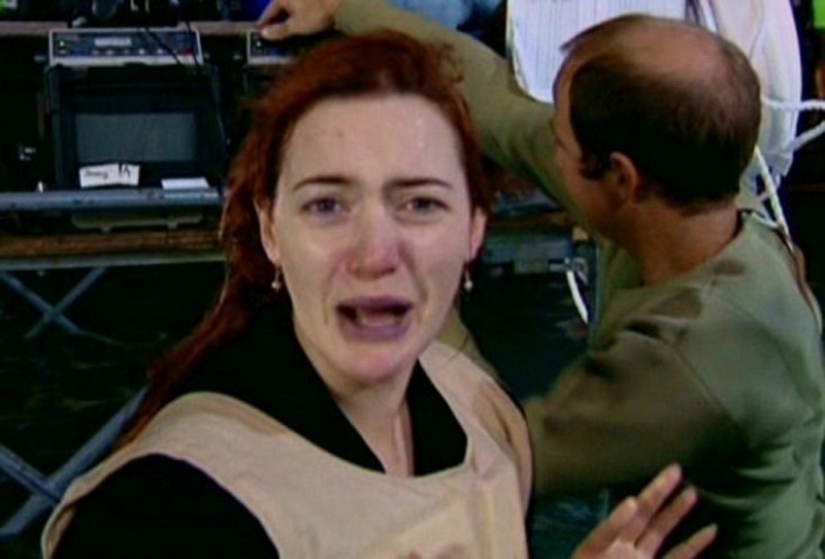
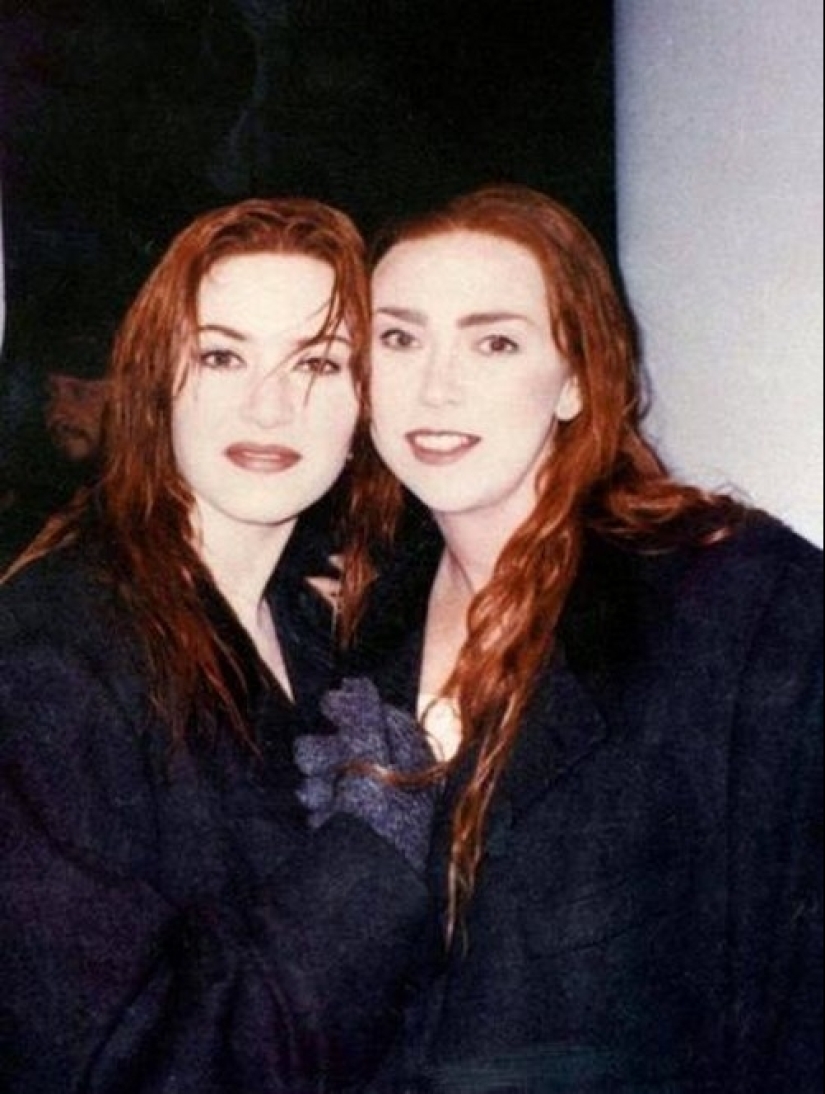
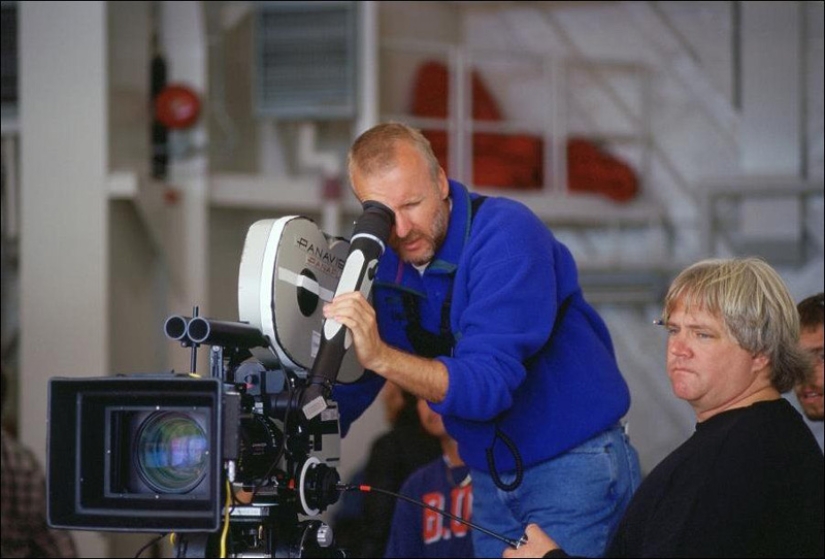
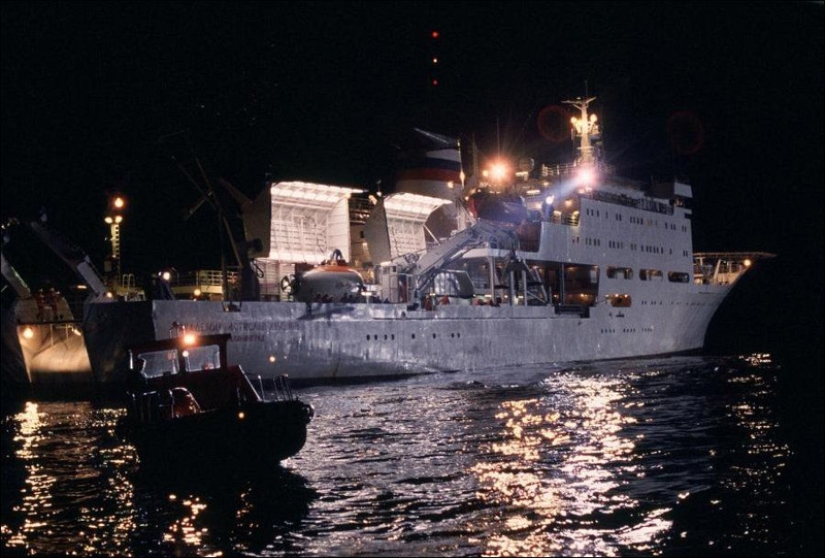
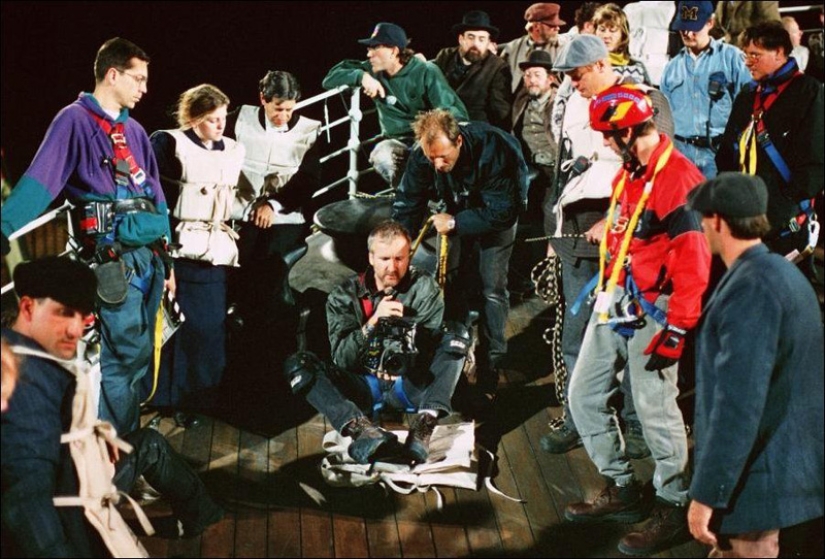
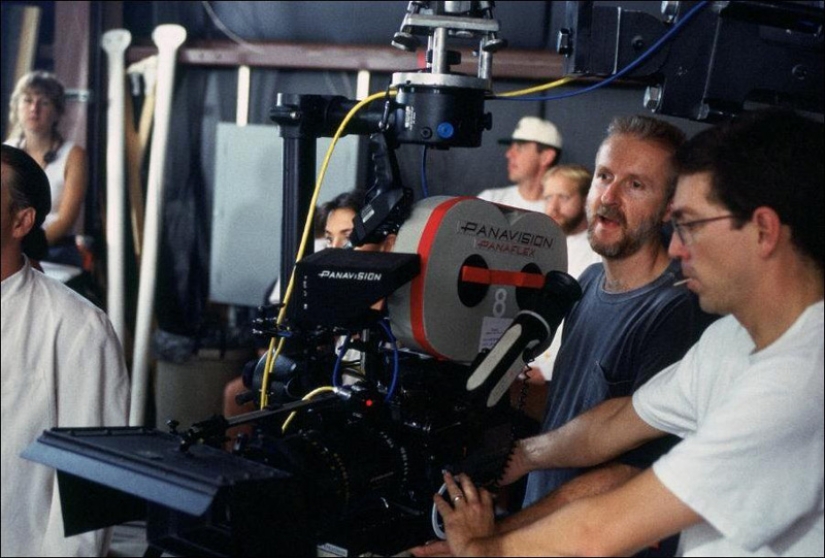
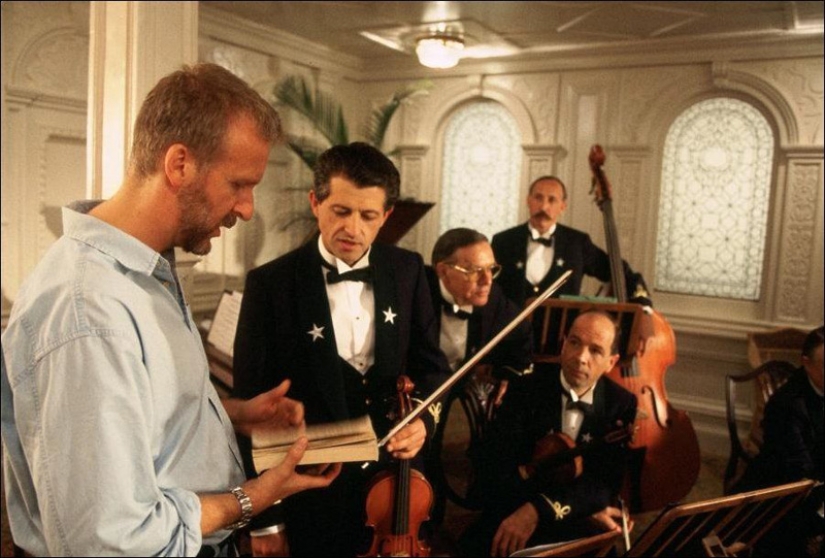
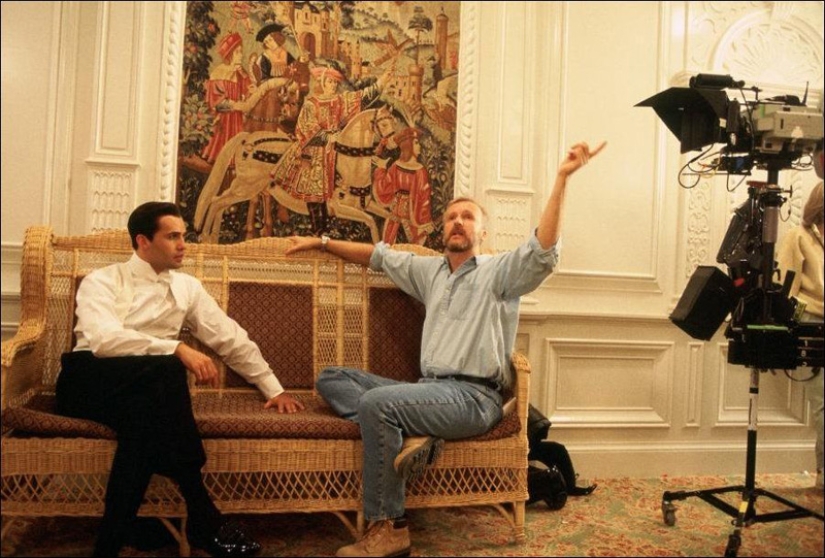
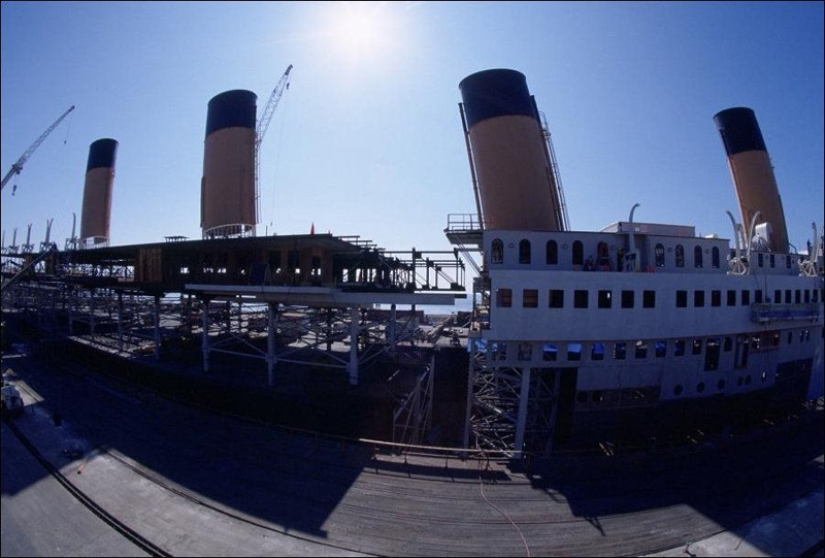
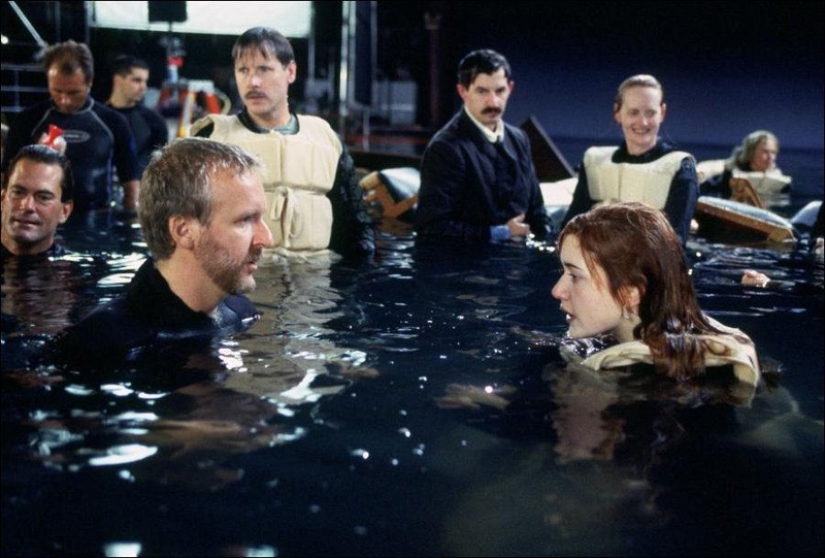
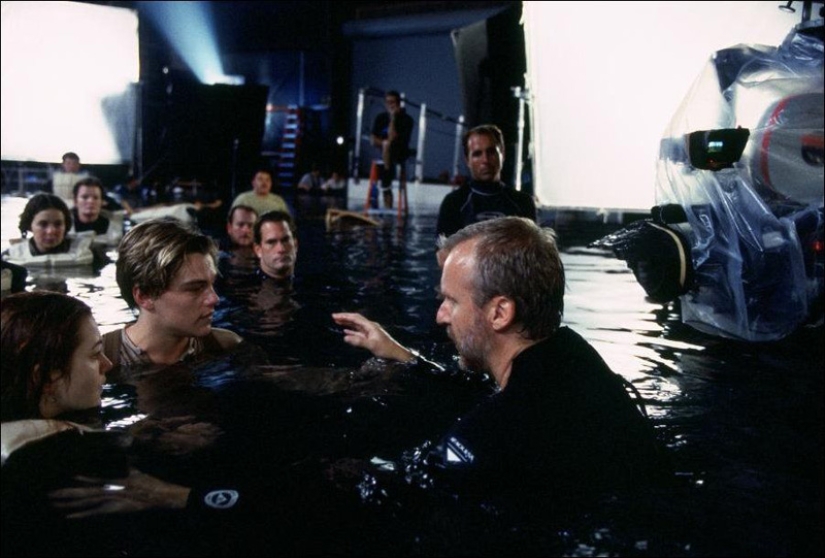
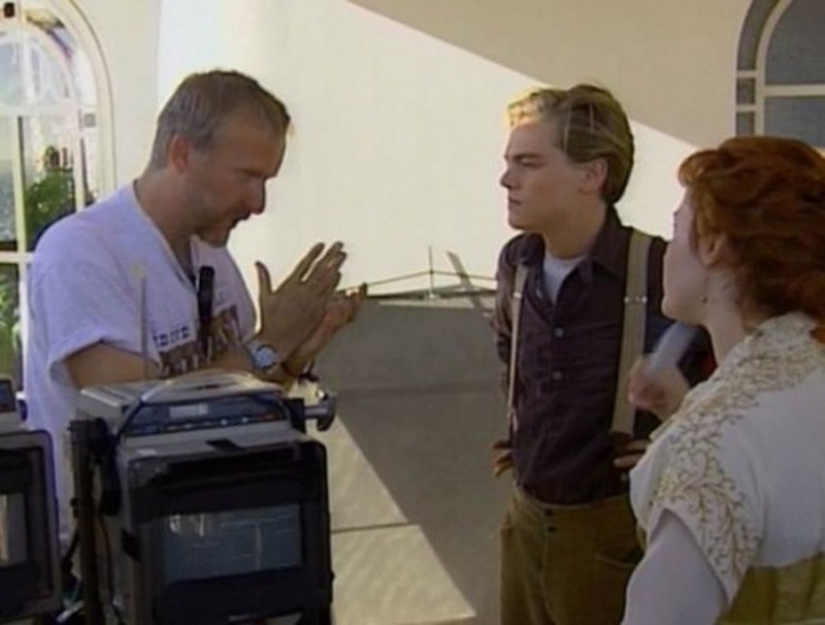
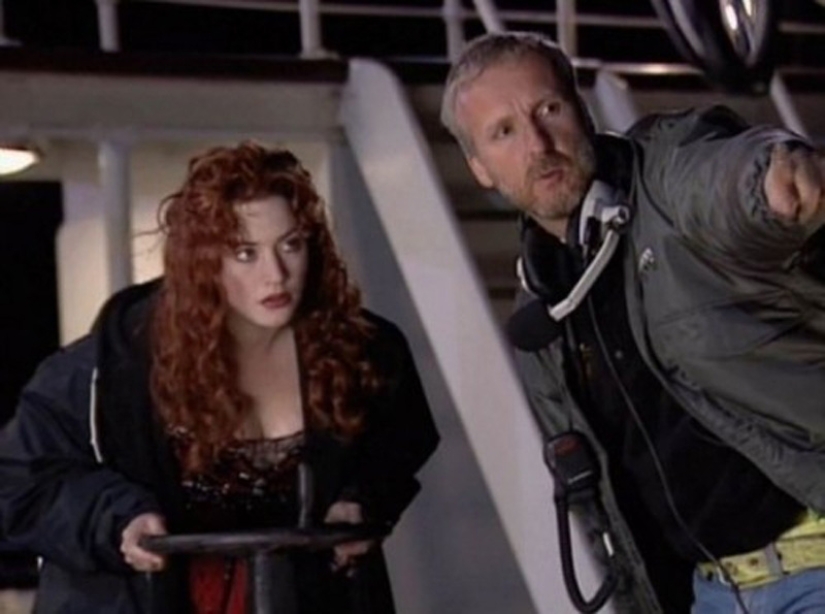
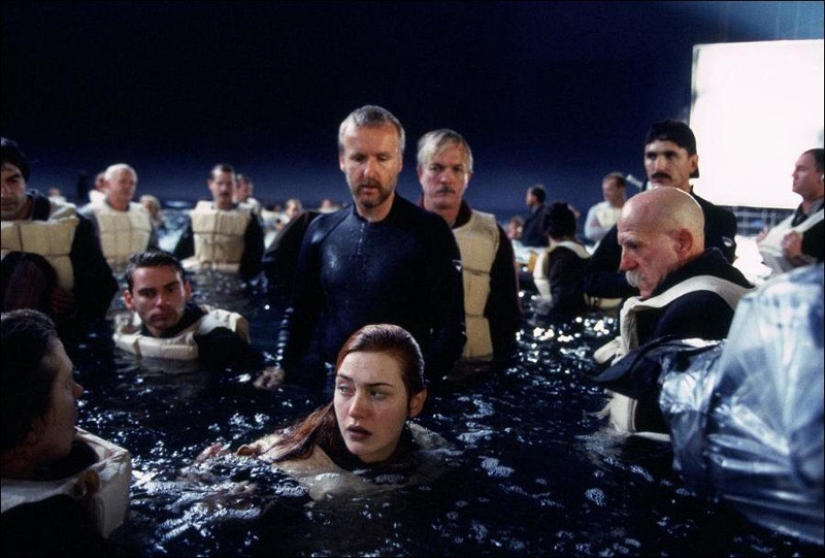
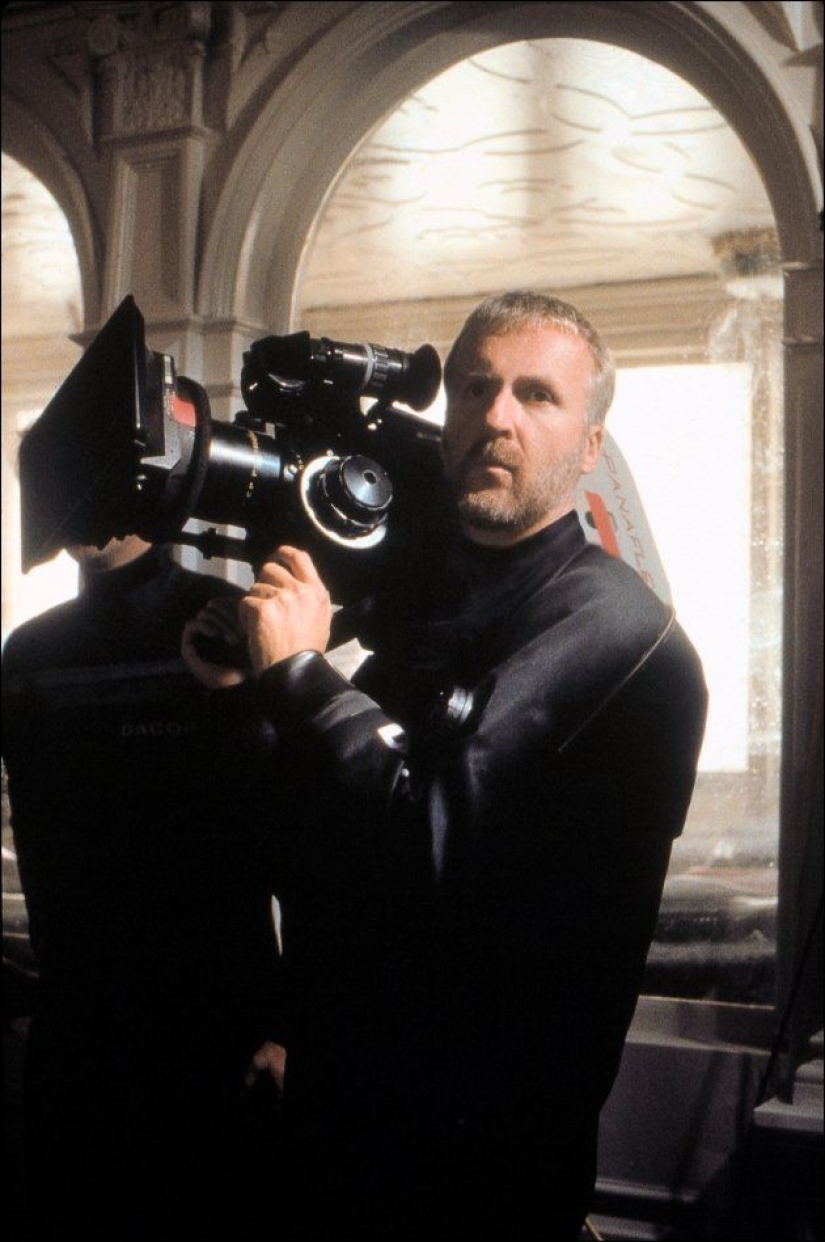
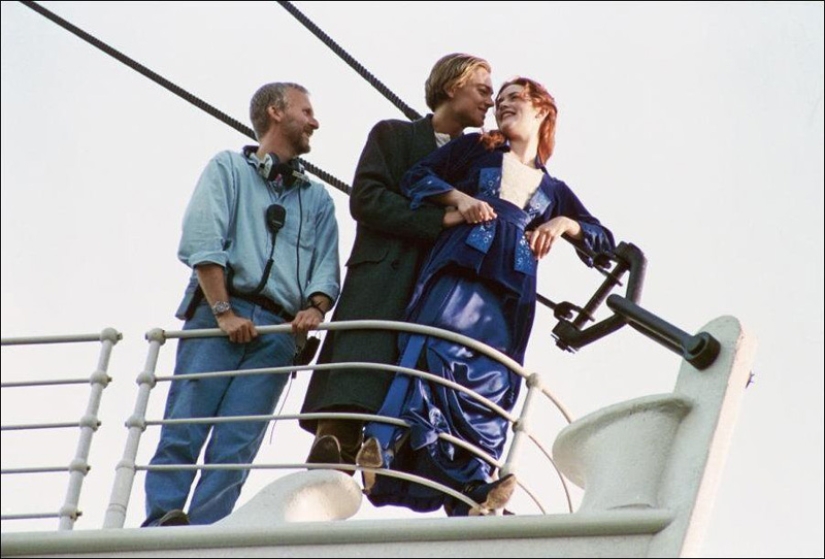
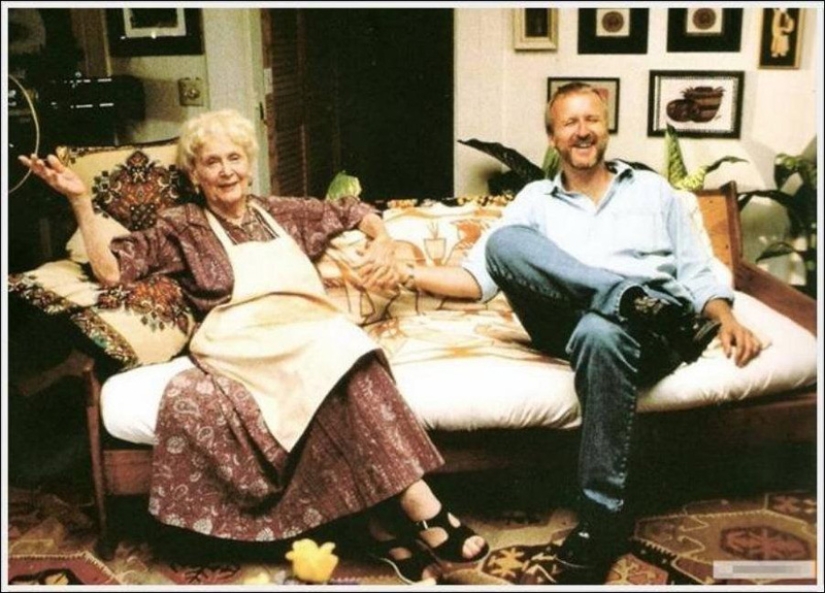
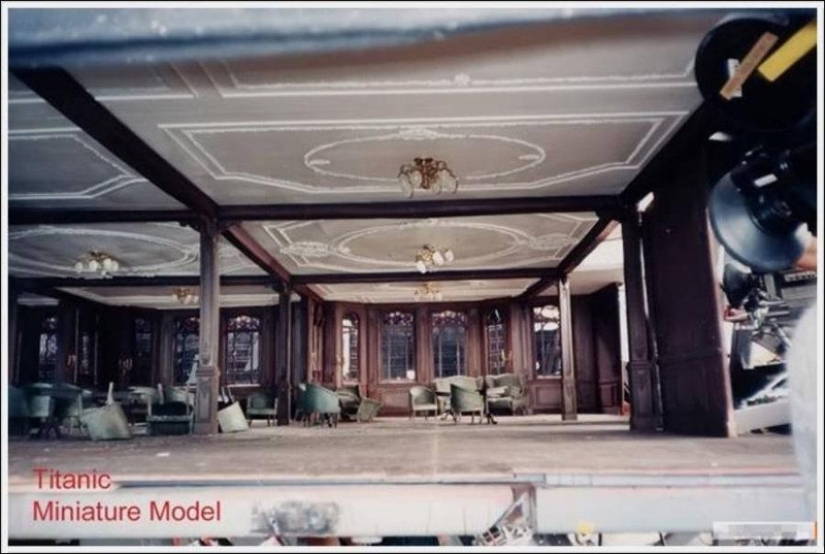
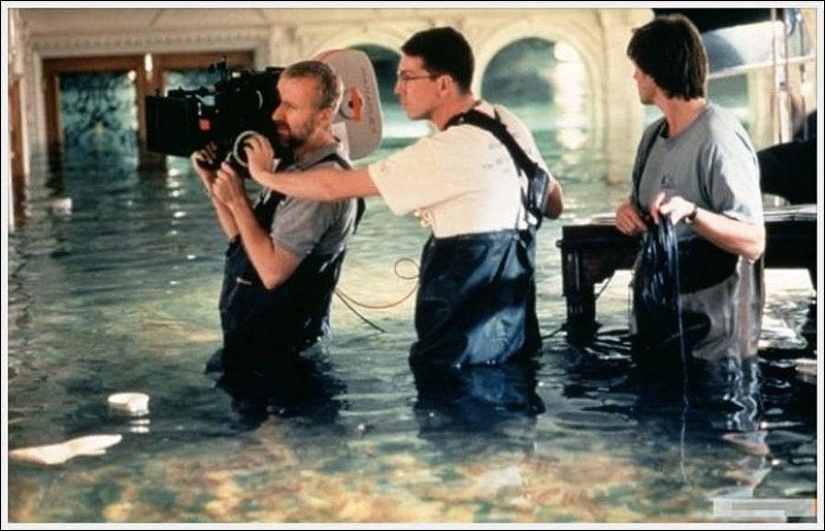
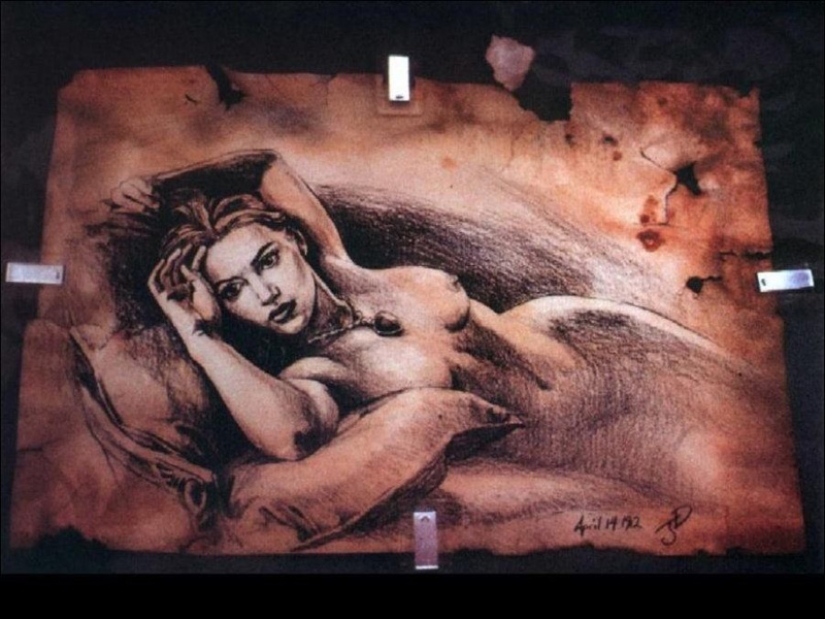
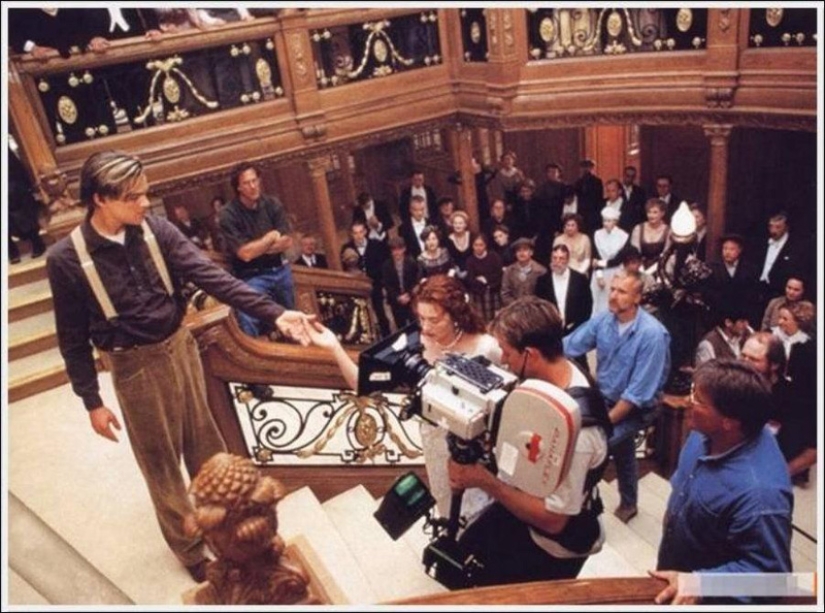
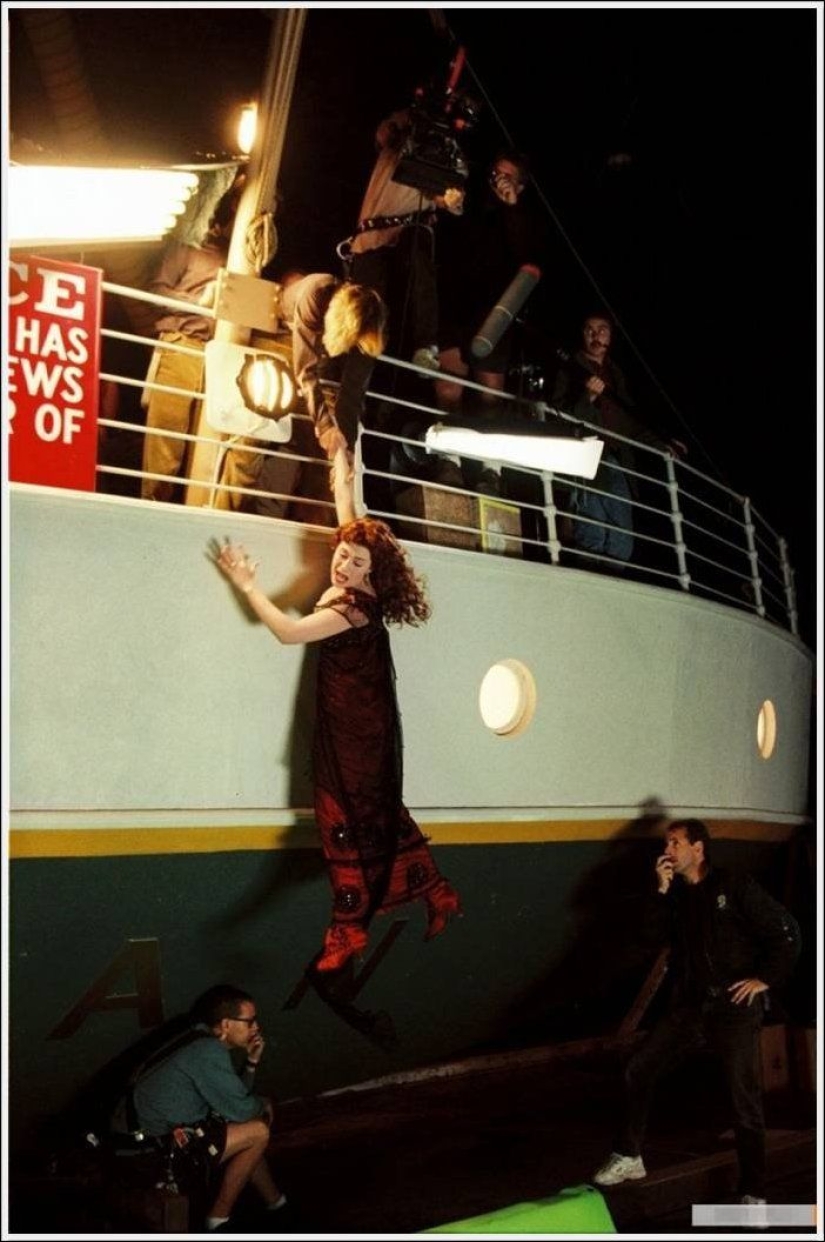
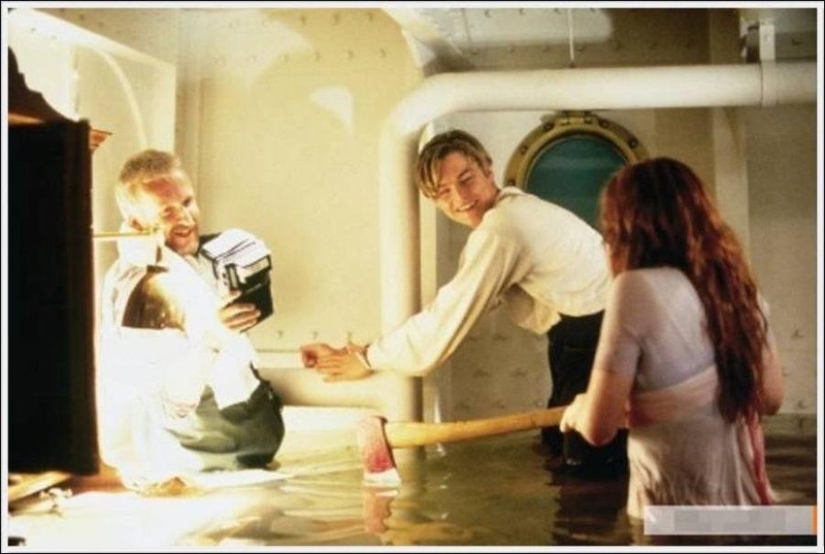
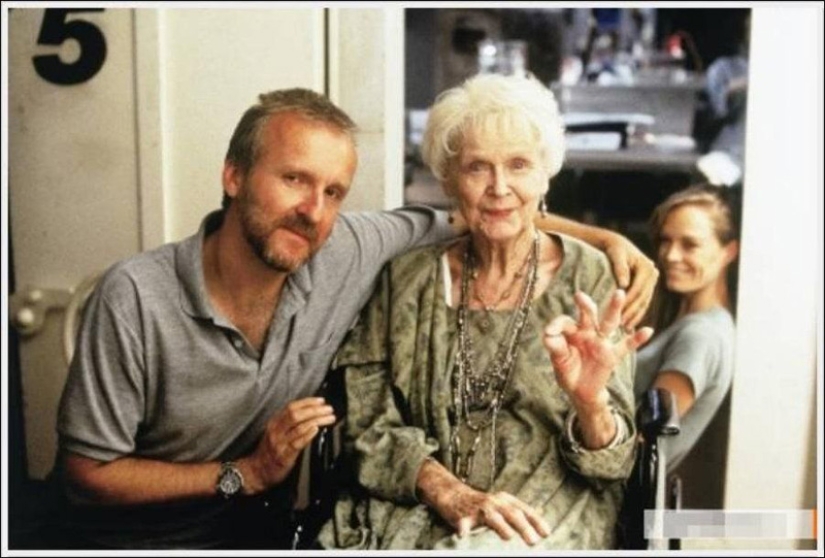
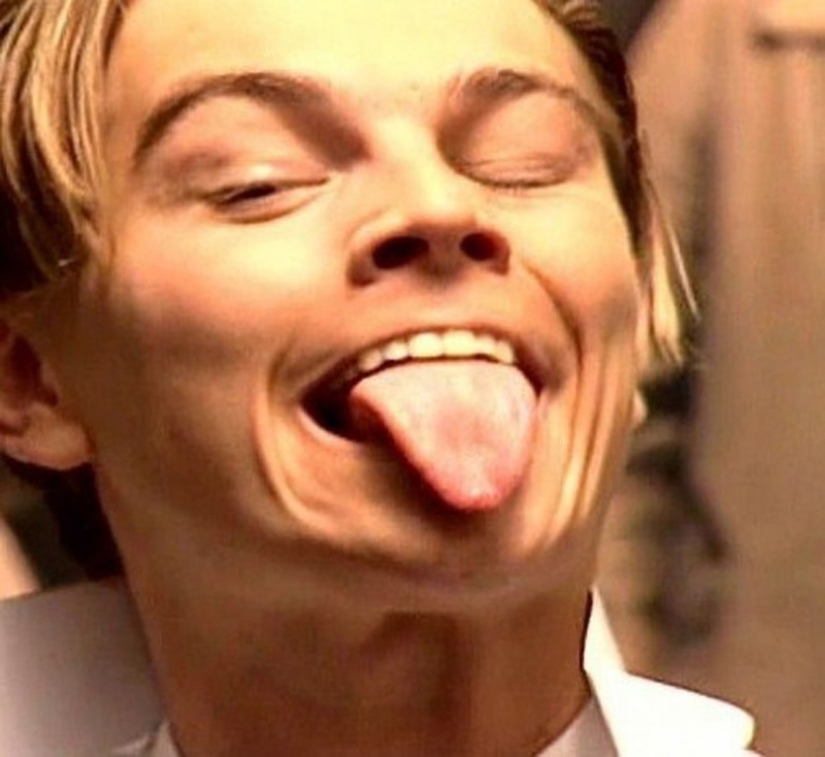
Recent articles

It's high time to admit that this whole hipster idea has gone too far. The concept has become so popular that even restaurants have ...

There is a perception that people only use 10% of their brain potential. But the heroes of our review, apparently, found a way to ...

New Year's is a time to surprise and delight loved ones not only with gifts but also with a unique presentation of the holiday ...